VW Tiguan vs Porsche Cayenne - Differences and prices compared
Compare performance (272 HP vs 739 HP), boot space and price (32800 £ vs 87000 £) at a glance. Find out which car is the better choice for you – VW Tiguan or Porsche Cayenne?
Costs and Efficiency:
Looking at overall running costs, both models reveal some interesting differences in everyday economy.
VW Tiguan has a convincingly advantage in terms of price – it starts at 32800 £, while the Porsche Cayenne costs 87000 £. That’s a price difference of around 54215 £.
Fuel consumption also shows a difference: VW Tiguan manages with 1.40 L and is therefore clearly more efficient than the Porsche Cayenne with 4 L. The difference is about 2.60 L per 100 km.
As for range, the VW Tiguan performs evident better – achieving up to 126 km, about 43 km more than the Porsche Cayenne.
Engine and Performance:
Under the bonnet, it becomes clear which model is tuned for sportiness and which one takes the lead when you hit the accelerator.
When it comes to engine power, the Porsche Cayenne has a convincingly edge – offering 739 HP compared to 272 HP. That’s roughly 467 HP more horsepower.
In acceleration from 0 to 100 km/h, the Porsche Cayenne is clearly quicker – completing the sprint in 3.60 s, while the VW Tiguan takes 5.90 s. That’s about 2.30 s faster.
In terms of top speed, the Porsche Cayenne performs clearly perceptible better – reaching 305 km/h, while the VW Tiguan tops out at 242 km/h. The difference is around 63 km/h.
There’s also a difference in torque: Porsche Cayenne pulls decisively stronger with 950 Nm compared to 400 Nm. That’s about 550 Nm difference.
Space and Everyday Use:
Beyond pure performance, interior space and usability matter most in daily life. This is where you see which car is more practical and versatile.
Both vehicles offer seating for 5 people.
In curb weight, VW Tiguan is clearly perceptible lighter – 1599 kg compared to 2130 kg. The difference is around 531 kg.
In terms of boot space, the Porsche Cayenne offers a bit more room – 772 L compared to 652 L. That’s a difference of about 120 L.
In maximum load capacity, the Porsche Cayenne performs slight better – up to 1708 L, which is about 58 L more than the VW Tiguan.
When it comes to payload, Porsche Cayenne distinct takes the win – 705 kg compared to 533 kg. That’s a difference of about 172 kg.
Who wins the race?
The VW Tiguan proves to be is largely superior and therefore becomes our DriveDuel Champion!
VW Tiguan is the better all-rounder in this comparison.

VW Tiguan
Costs and Consumption
View detailed analysis
Engine and Performance
View detailed analysis
Dimensions and Body
View detailed analysis
VW Tiguan
The VW Tiguan blends sensible family practicality with a dash of German polish, delivering a calm, reassuring ride and a cabin that never feels like an afterthought. For buyers who want an SUV that’s easy to live with yet still nicely dressed, the Tiguan is the grown‑up choice that keeps a cheeky wink in reserve.
details





Porsche Cayenne
Few SUVs blend athletic poise and Teutonic precision like the Porsche Cayenne, putting genuine sports‑car feeling into a roomy, everyday package. If you want a practical family hauler that still makes you grin every time you merge, the Cayenne delivers — turning errands into an excuse for a spirited drive.
details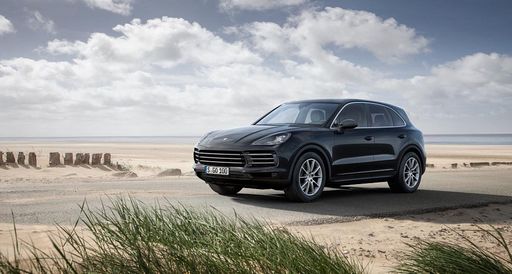
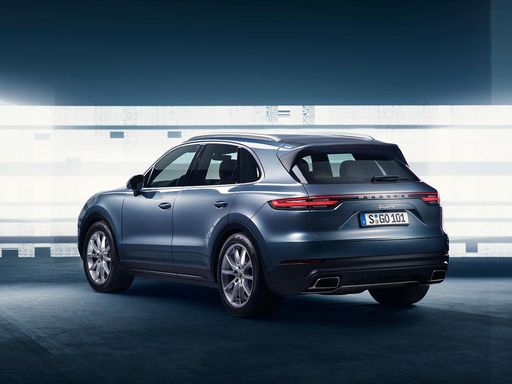
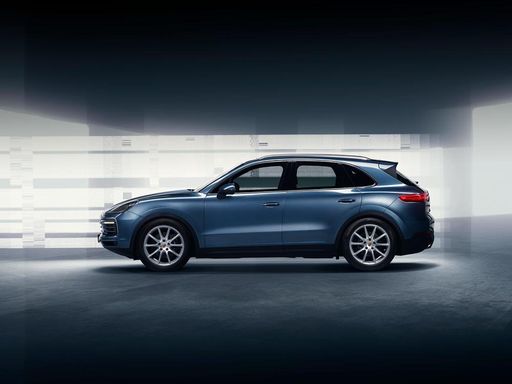
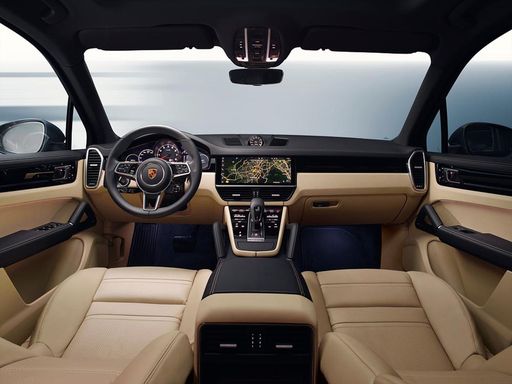
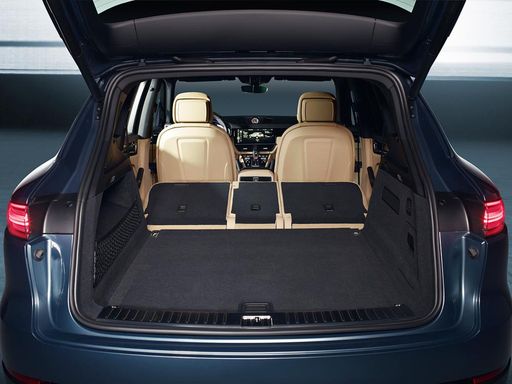

|

|
|
|
|
Costs and Consumption |
|
|---|---|
|
Price
32800 - 51900 £
|
Price
87000 - 186400 £
|
|
Consumption L/100km
1.4 - 8.4 L
|
Consumption L/100km
4 - 12.2 L
|
|
Consumption kWh/100km
-
|
Consumption kWh/100km
-
|
|
Electric Range
118 - 126 km
|
Electric Range
74 - 83 km
|
|
Battery Capacity
19.70 kWh
|
Battery Capacity
21.80 kWh
|
|
co2
32 - 190 g/km
|
co2
90 - 277 g/km
|
|
Fuel tank capacity
45 - 58 L
|
Fuel tank capacity
70 - 90 L
|
Dimensions and Body |
|
|---|---|
|
Body Type
SUV
|
Body Type
SUV
|
|
Seats
5
|
Seats
4 - 5
|
|
Doors
5
|
Doors
5
|
|
Curb weight
1599 - 1890 kg
|
Curb weight
2130 - 2670 kg
|
|
Trunk capacity
490 - 652 L
|
Trunk capacity
434 - 772 L
|
|
Length
4539 mm
|
Length
4930 mm
|
|
Width
1842 - 1859 mm
|
Width
1983 - 1989 mm
|
|
Height
1656 - 1658 mm
|
Height
1652 - 1698 mm
|
|
Max trunk capacity
1486 - 1650 L
|
Max trunk capacity
1344 - 1708 L
|
|
Payload
460 - 533 kg
|
Payload
365 - 705 kg
|
Engine and Performance |
|
|---|---|
|
Engine Type
Petrol, Petrol MHEV, Diesel, Plugin Hybrid
|
Engine Type
Petrol, Plugin Hybrid
|
|
Transmission
Automatic
|
Transmission
Automatic
|
|
Transmission Detail
Dual-Clutch Automatic
|
Transmission Detail
Automatic Gearbox
|
|
Drive Type
All-Wheel Drive, Front-Wheel Drive
|
Drive Type
All-Wheel Drive
|
|
Power HP
130 - 272 HP
|
Power HP
353 - 739 HP
|
|
Acceleration 0-100km/h
5.9 - 10.6 s
|
Acceleration 0-100km/h
3.6 - 6 s
|
|
Max Speed
198 - 242 km/h
|
Max Speed
248 - 305 km/h
|
|
Torque
220 - 400 Nm
|
Torque
500 - 950 Nm
|
|
Number of Cylinders
4
|
Number of Cylinders
6 - 8
|
|
Power kW
96 - 200 kW
|
Power kW
260 - 544 kW
|
|
Engine capacity
1498 - 1984 cm3
|
Engine capacity
2995 - 3996 cm3
|
General |
|
|---|---|
|
Model Year
2024 - 2025
|
Model Year
2025
|
|
CO2 Efficiency Class
G, D, E, F, B
|
CO2 Efficiency Class
G, B, C
|
|
Brand
VW
|
Brand
Porsche
|
What drivetrain options does the VW Tiguan have?
The VW Tiguan is offered with All-Wheel Drive or Front-Wheel Drive.
The prices and data displayed are estimates based on German list prices and may vary by country. This information is not legally binding.
